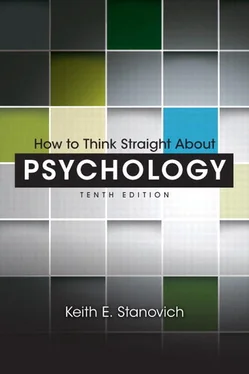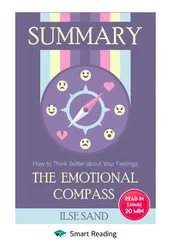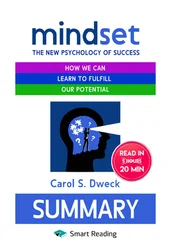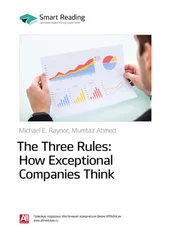Kolata, G. (2011, June 21). When running up mileage, 10 percent isn’t the cap. New York Times, p. D5.
Kolbert, E. (2005, September 19). Storm warnings. The New Yorker, pp. 35–36.
Koocher, G. P. (2006, October). Psychological science is not politically correct. APA Monitor, p. 5.
Kosova, W., & Wingert, P. (2009, June 8). Crazy talk. Newsweek, pp. 54–62.
Kowalski, P., & Taylor, A. K. (2009) . The effect of refuting misconceptions in the introductory psychology class. Teaching of Psychology, 36, 153–159.
Krauss, L. M. (2008, October 28). McCain’s science earmark error. Los Angeles Times. Retrieved November 5, 2008, from http:// genesis1.asu.edu/~krauss/ latimesoct28.html Krauthammer, C. (1985, December 29). The twilight of psychotherapy? Detroit News.
Kristof, N. (2009, November 29). How can we help? New York Times Book Review, p. 27.
Krueger, J. I., Vohs, K. D., & Baumeister, R. F. (2008) . Is the allure of self-esteem a mirage after all? American Psychologist, 63, 64–65.
Kruger, J., Wirtz, D., & Miller, D. T. (2005) . Counterfactual thinking and the first instinct fallacy. Journal of Personality and Social Psychology, 88, 725–735.
Kruglanski, A. W., Crenshaw, M., Post, J. M., & Victoroff, J. (2007) . What should this fight be called? Psychological Science in the Public Interest, 8, 97–133.
Kruglanski, A. W., Gelfand, M., & Gunaratna, R. (2010, January). Detainee deradicalization: A challenge for psychological science. APS Observer, 19–22.
Kunar, M. A., Carter, R., Cohen, M., & Horowitz, T. S. (2008) . Telephone conversation impairs sustained visual attention via a central bottleneck. Psychonomic Bulletin & Review, 15, 1135–1140.
Kushner, H. I. (1999) . A cursing brain? The histories of Tourette Syndrome. Cambridge, MA: Harvard University Press.
Laden, G. (2008) . Likely voters prefer evolution over creationism. Skeptical Inquirer, 32(4), 13–14.
Landsburg, S. E. (2007) . More sex is safer sex: The unconventional wisdom of economics. New York: Free Press.
Larrick, R. P., Timmerman, T. A., Carton, A. M., & Abrevaya, J. (2011) . Temper, temperature, and temptation: Heat-related retaliation in baseball. Psychological Science, 22, 423–428.
Lazarsfeld, P. (1949) . The American Soldier—an expository review. Public Opinion Quarterly, 13, 377–404.
Lehrer, J. (2010, December 13). The truth wears off. The New Yorker, 52–57.
Leibowitz, H. W. (1996) . The symbiosis between basic and applied research. American Psychologist, 51, 366–370.
Levy, E. (2009. February 13). The maggots in your mushrooms. New York Times, p. A25.
Levy, J., Pashler, H., & Boer, E. (2006) . Central interference in driving: Is there any stopping the psychological refractory period? Psychological Science, 17, 228–235.
Levy, S. (2005, January 31). Does your iPod play favorites? Newsweek, p. 10.
Lewis, M. (2004) . Moneyball. New York: Norton.
Li, C. (1975) . Path analysis: A primer. Pacific Grove, CA: Boxwood Press.
Li, M., & Chapman, G. B. (2009) . “100% of anything looks good”: The appeal of one hundred percent. Psychonomic Bulletin & Review, 16, 156–162.
Lilienfeld, S. O. (1998) . Pseudoscience in contemporary clinical psychology: What it is and what we can do about it. The Clinical Psychologist, 51(4), 3–9.
Lilienfeld, S. O. (2002) . New journal dedicated to distinguishing science from pseudoscience in mental health. Skeptical Inquirer, 26(3), 7–8.
Lilienfeld, S. O. (2005) . The 10 commandments of helping students distinguish science from pseudoscience in psychology. APS Observer, 18(9), 39–51.
Lilienfeld, S. O. (2006, February). Correlation still isn’t causation. APS Observer, 19, 9.
Lilienfeld, S. O. (2007) . Psychological treatments that cause harm. Perspectives on Psychological Science, 2, 53–70.
Lilienfeld, S. O. (2010) . Can psychology become a science? Personality and Individual Differences, 49, 281–288.
Lilienfeld, S. O. (2012) . Public skepticism of psychology: Why many people perceive the study of human behavior as unscientific. American Psychologist, 67, 111–129.
Lilienfeld, S. O., & Lohr, J. M. (2000) . Thought field therapy practitioners and educators sanctioned. Skeptical Inquirer, 24(2), 5.
Lilienfeld, S. O., Lynn, S. J., & Lohr, J. M. (Eds.). (2003) . Science and pseudoscience in clinical psychology. New York: Guilford Press.
Lilienfeld, S. O., Lynn, S. J., Ruscio, J., & Beyerstein, B. L. (2010) . 50 great myths of popular psychology. Malden, MA: Wiley-Blackwell.
Lilienfeld, S. O., Ruscio, J., & Lynn, S. J. (Eds.). (2008) . Navigating the mindfield: A guide to separating science from pseudoscience in mental health. Buffalo, NY: Prometheus Books.
Loftus, E. F., & Guyer, M. J. (2002, May/ June). Who abused Jane Doe: The hazards of the single case history. Skeptical Inquirer, 26(3), 24–32.
Long, B. (2007) . The contributions of economics to the study of college access and success. Teachers College Record, 109, 2367–2443.
Lutsky, N. (2006, March). Teaching quantitative reasoning. APS Observer, 19, 35–36.
Lynn, S. J., Loftus, E. F., Lilienfeld, S. O., & Lock, T. (2003) . Memory recovery techniques in psychotherapy: Problems and pitfalls. Skeptical Inquirer, 27(4), 40–46.
Lyubomirsky, S., & Boehm, J. K. (2010) . Human motives, happiness, and the puzzle of parenthood. Perspectives on Psychological Science, 5, 327–334.
MacCoun, R. (2002, December). Why a psychologist won the Nobel Prize in economics. APS Observer, 15(10), 1–8.
Madrick, J. (2006, January 12). The way to a fair deal. New York Review of Books, pp. 37–40.
Magee, B. (1985) . Philosophy and the real world: An introduction to Karl Popper.
LaSalle, IL: Open Court. Maizels, M. (2005) . Why should physicians care about behavioral research? Headache, 45, 411–413. Malabre, A. (1994) .
Lost prophets: An insider’s history of the modern economists. Cambridge, MA: Harvard Business Press.
Malkiel, B. G. (2011) . A random walk down Wall Street. New York: Norton.
Mamudi, S. (2009, October 8). Active management loses in risk study. Wall Street Journal, p. C9.
Manjoo, F. (2008) . True enough: Learning to live in a post-fact society. Hoboken, NJ: John Wiley.
Marks, D. F. (2001) . The psychology of the psychic. Buffalo, NY: Prometheus Books.
Martin, L. et al. (2011) . The “distressed” personality, coping and cardiovascular risk. Stress and Health, 27, 64–72.
Martin, R., & Hull, R. (2006) . The case study perspective on psychological research. In R. J. Sternberg, H.
L. Roediger & D. F. Halpern (Eds.), Critical thinking in psychology (pp. 90–109). New York: Cambridge University Press.
Matthews, K. A. (2005) . Psychological perspectives on the development of coronary heart disease. American Psychologist, 60, 783–796.
Matute, H., Yarritu, I., & Vadillo, M. (2011) . Illusions of causality at the heart of pseudoscience. British Journal of Psychology, 102, 392–405.
Mayer, J. D., Salovey, P., & Caruso, D. R. (2008) . Emotional intelligence: New ability or eclectic traits? American Psychologist, 63, 503–517.
Mazur, J. E. (2010) . What’s luck got to do with it? Princeton, NJ: Princeton University Press.
McBride-Chang, C., & Kail, R. V. (2002) . Cross-cultural similarities in the predictors of reading acquisition. Child Development, 73, 1392–1407.
McCabe, D. P., & Castel, A. D. (2008) . Seeing is believing: The effect of brain images on judgments of scientific reasoning. Cognition, 107, 343–352.
McCloskey, M. (1983, April). Intuitive physics. Scientific American, 248(4), 122–130.
McEvoy, S. P., Stevenson, M. R., McCartt, A. T., Woodword, M., Haworth, C., Palamara, P., & Cercarelli, R. (2005, August 20). Role of mobile phones in motor vehicle crashes resulting in hospital attendance: A case-crossover study. British Medical Journal, 331(7514) , 428.
Читать дальше












